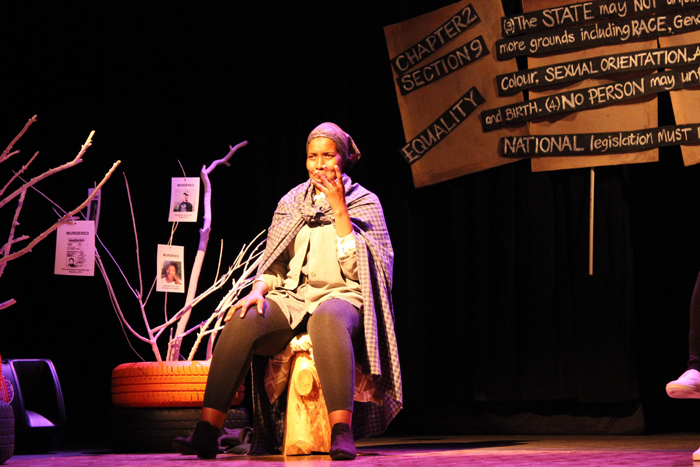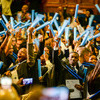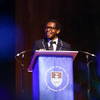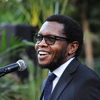Love turned to hate
04 March 2017 | Story Kate-Lyn Moore. Photo Charmaine Carol.
Sensitive audience members take note: Chapter 2, Section 9 deals with 'corrective' rape and the abuse and murder of lesbian womxn, but ultimately gives them a voice too.
A young girl sits in class. Unnoticed by her, her urine flows freely and unnoticed, dripping down her legs into a puddle on the floor. It was only after the school called her parents that she told her father what her brother has done to her. And the damage it has done to her young body.
How does one even begin to engage with such abuse?
In a context of the pervasive silencing, rape and murder of lesbian womxn, director and writer Phyllis Klotz found her solution. She presents the testimony of over forty South African lesbian womxn, given voice by four courageous performers.
The result is harrowing, loving and unforgettable. The cast looks exhausted by the end of it.
Ayanda Rose Fali, Khanyisa Nanase, Tsholofelo Ross and Ayanda Sibisi circle the stage. They walk between three trees with branches bearing the portraits of lesbian womxn, murdered in acts of hatred. Above this loom the words of Chapter 2, Section 9 of the South African constitution.
“The state may not unfairly discriminate directly or indirectly against anyone on one or more grounds, including race, gender, sex, pregnancy, marital status, ethnic or social origin, colour, sexual orientation, age, disability, religion, conscience, belief, culture, language and birth.
No person may unfairly discriminate directly or indirectly against anyone on one or more grounds in terms of subsection (3). National legislation must be enacted to prevent or prohibit unfair discrimination.”
Through the testimony of these womxn, their mothers, their sisters and the police officers who have failed them, the cast attempts to make sense of the daily uncertainty and danger experienced by LGBTIQ people in South Africa and the unwillingness of the state and its citizens to abide by their constitution.
Leaving no stone unturned, the cast also tackles religion and the branding of people as “un-African” on the basis of their sexuality.
In the role of sangoma, cast member Ayanda Sibisi, speaks to the homophobia in many spaces of tradition and culture.
She asks the audience: if my ancestors, if the universe has chosen me for this role of sangoma, how then must I then be judged on my sexuality?
The cast continue bravely, accompanied by solo musician Isaac Molelekoa on violin and piano. Occasionally they break into stirring, a cappella song.
“If this is a problem, then help us find a way to deal with it,” they sing.
“If you don't name it, does it exist?”
We meet a range of womxn, speaking of their lives and their loved ones. They speak of trauma, incomprehensible abuse and a determination to retain their joy.
We begin within the home and with the silencing of LGBTQIA+ persons by their families and communities. We meet lesbian womxn who are called too feminine, too masculine, too in-between, or are shunned by other lesbians for having children. We share in their grief, but also in their delight.
We learn about womxn beaten almost to death and womxn who are murdered. We try and imagine how deep their wells of resilience can possibly go.
This show demands these womxn be remembered.
The show runs from 2 to 11 March at 19:30 nightly with public matinees on Saturdays 4 and 11 March at 15:00. There is an age restriction of 16 years. Book tickets online....
For discounted corporate, block or school bookings, charities and fundraisers, contact Sharon Ward on 021 680 3962, or Carmen Kearns on 021 680 3993.
 This work is licensed under a Creative Commons Attribution-NoDerivatives 4.0 International License.
This work is licensed under a Creative Commons Attribution-NoDerivatives 4.0 International License.
Please view the republishing articles page for more information.










